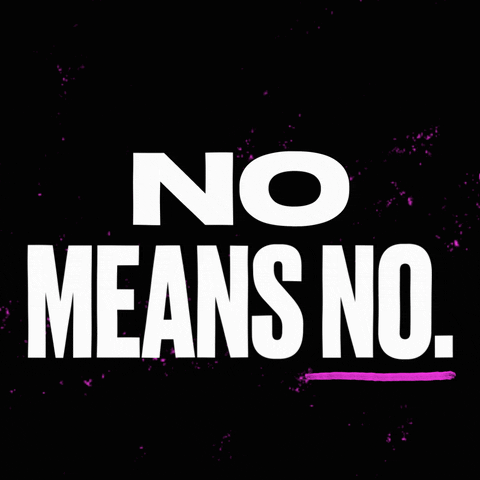TW: Supporting your teen to understand the new consent laws
Discussion forum for parents in Australia
TW: Supporting your teen to understand the new consent laws
- Parents forum
- :
- Explore Ideas and Options
- :
- ReachOut Discussions
- :
- TW: Supporting your teen to understand the new con...
- Parents forum
- Chill out and info
- Introductions and chat
- Community info
- Common Concerns
- Concerned about my teen
- Everyday parenting
- Parents and carers connect: It’s complicated
- Explore Ideas and Options
- ReachOut Discussions
- Ask A Professional
- Live chats archive
- Single parents, carers and blended familes
- Parenting and COVID
- Subscribe to RSS Feed
- Mark Topic as New
- Mark Topic as Read
- Float this Topic for Current User
- Bookmark
- Subscribe
- Printer Friendly Page
- Mark as New
- Bookmark
- Subscribe
- Subscribe to RSS Feed
- Permalink
- Report Inappropriate Content
TW: Supporting your teen to understand the new consent laws


06-08-2022 04:02 PM - edited 06-08-2022 04:12 PM
CONTENT WARNING: This post discusses sexual consent and may be triggering for people who have experienced unwanted, unsafe or upsetting sexual contact, whether towards themselves or someone else.
If you need support, please contact 1800RESPECT, Fullstop Australia or Lifeline
New 'affirmative consent' laws
NSW has recently passed new laws about sexual consent, and some other states are planning to do similar, so we thought it might be helpful to share some information about what those laws mean so parents and carers can better support the young people in their lives when it comes to understanding consent.
The new laws about sexual consent are sometimes known as ‘affirmative consent’ laws because they clarify that consent has to be "a free and voluntary agreement that should not be presumed".
This means that people can’t assume consent, they have to actively check that the other person (or people) they’re with are consenting and it’s against the law to engage in any kind of sexual activity without clear consent from the other person.
If you want to have a read through the laws relevant to your state, take a look on the Youth Law Australia website for more information.
How do I explain consent to a young person?
ReachOut: 5 things you need to know about sexual consent
To explain the concept of consent to a young person, it may be helpful to explain that consent is basically the same as seeking someone’s permission - for example, when we ask to borrow something or to take a photo of someone.
We would never assume someone is okay with us borrowing their car just because they didn’t say no, and in the same way, we can’t assume that another person is consenting to sexual activity, unless we ask their permission and they say or do something that clearly says ‘yes’.
People can’t consent if they’ve been forced, tricked or intimidated into the sexual activity, they can't give consent if they're under age or can't fully understand consent, and they can’t give consent if they are asleep, unconscious or so affected by drugs or alcohol that they're not able to give consent.
It is also important to clarify that people still need to make sure they have another person's consent to sexual activity if:
- They are in a relationship
- They agreed to do something sexual in the past
- They consented to one type of sexual activity, but not a different type
People have no obligation to be sexual with anyone, and they can change their mind and withdraw consent at any time. Likewise, if someone isn’t sure, wants to slow down, wants to wait, looks uncomfortable, freezes, or says nothing when someone asks their consent, then they have not given their consent to sexual activity.

Consent means that both/all people involved are giving an enthusiastic yes to sexual activity.
How do I support a young person to understand how to seek consent?
COMMUNICATION
They can ask the other person/people what they want to do:
- Can I kiss you?
- Is this okay?
- Do you want to do this?
- Want me to keep going?
- How does that feel?
- What do you want to do next?
- Do you want to wait?
They can ask the other person/people where their boundaries are:
- Do you feel comfortable doing this?
- I was thinking about trying this, how do you feel about that? Should we wait a bit longer?
BODY LANGUAGE
They can check in regularly to make sure the other person/people are still comfortable, especially if they start to look uncomfortable or unsure. If the other person seems uncomfortable, the young person should stop and ask if they’re okay.
Some signs a person might be uncomfortable are:
- Freezing
- Not responding
- Tensing up
- Moving away
It's important to check in with people's body language, but it can be easy to misinterpret, so it is always important for people to keep checking with the other person that they still have consent during any sexual activity.
We'd love it if people would be willing to share their thoughts...
How have you supported the young people in your life to understand what consent means?
Hi there!
It looks like you’re visiting us from a country other than Australia.
We are an Australian service and think you’d benefit more from looking up a similar service in your country.
You are welcome to look around the forums, but please don’t make an account or post, as we can’t offer you the help you may need.
Before you go ahead and post, you should know that we remove non-Australian accounts – not because we don’t want to help or connect with you, but because we may not be able to provide you with the service that you require.
